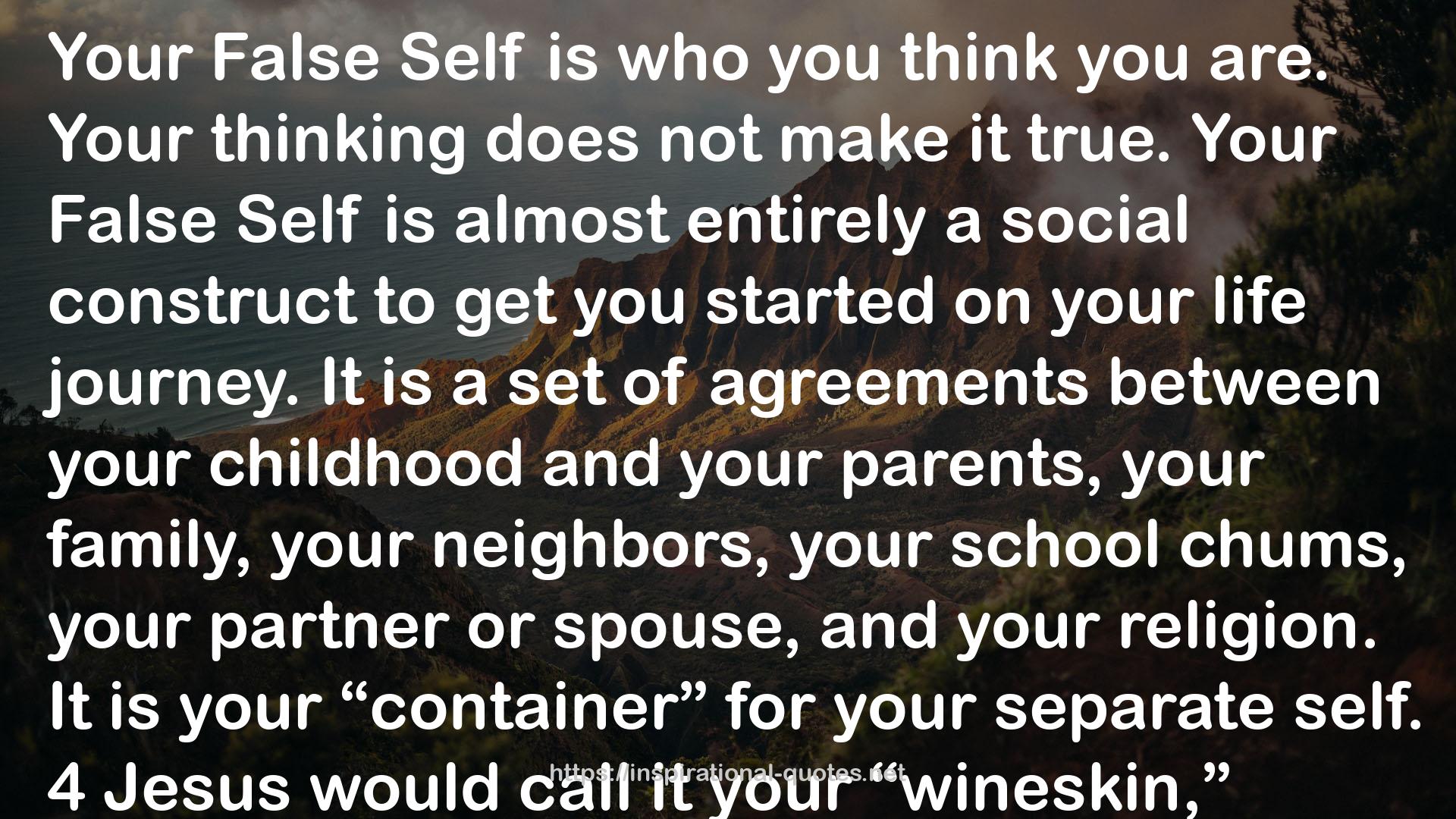" Your False Self is who you think you are. Your thinking does not make it true. Your False Self is almost entirely a social construct to get you started on your life journey. It is a set of agreements between your childhood and your parents, your family, your neighbors, your school chums, your partner or spouse, and your religion. It is your “container” for your separate self. 4 Jesus would call it your “wineskin,” which he points out usually cannot hold any new wine (Mark 2: 21–22). Your ego container likes to stay “contained” and hates change. Your False Self is how you define yourself outside of love, relationship, or divine union. After you have spent many years laboriously building this separate self, with all its labels and preoccupations, you are very attached to it. And why wouldn’t you be? It’s what you know and all you know. To move beyond it will always feel like losing or dying. Perhaps you have noticed that master teachers like Jesus and the Buddha, St. Francis, all the “Teresas” (Avila, Lisieux, and Calcutta), Hafiz, Kabir, and Rumi talk about dying much more than we are comfortable with. They all know that if you do not learn the art of dying and letting go early, you will hold onto your False Self far too long, until it kills you anyway. "
― Richard Rohr , Immortal Diamond: The Search for Our True Self
